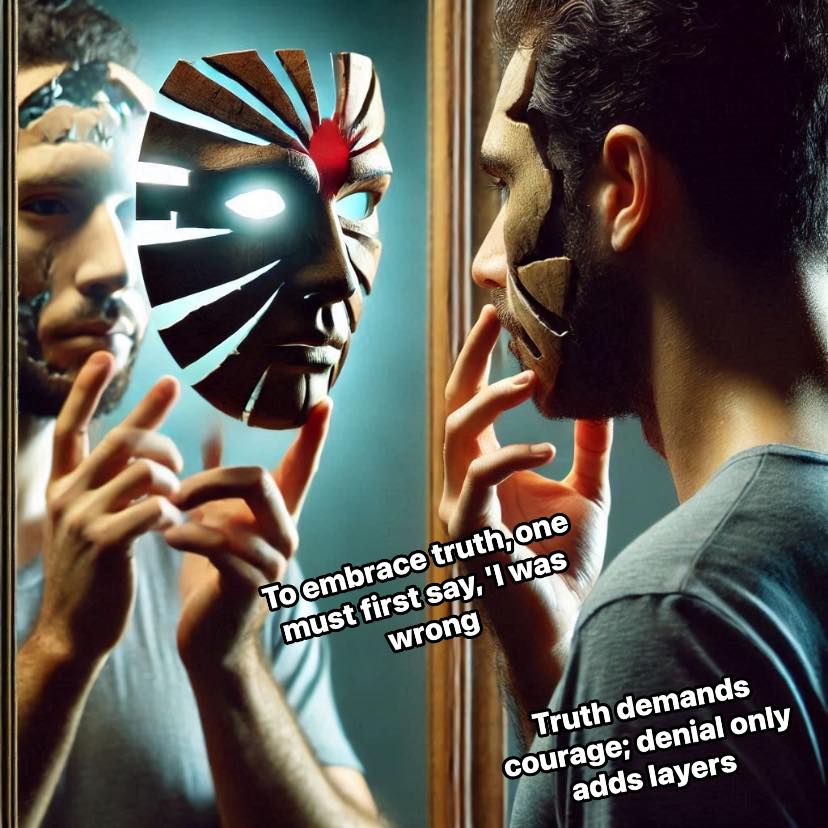
Once upon a time, in a quiet village surrounded by mountains, there lived a man named Kian, a renowned mirror maker. His mirrors were unlike any other—crafted with such precision that they reflected the world with immaculate clarity. Travelers came from distant lands to admire his work, claiming that his mirrors could reveal the soul of the one who gazed into them.
One day, a philosopher named Dara visited Kian’s workshop. She brought with her an ancient challenge: “Create a mirror that reflects truth, no matter what stands in its way.”
Intrigued, Kian accepted the task. He worked tirelessly, perfecting his art. He tested countless materials, polished countless surfaces, but every time he thought he had succeeded, something distorted the reflection—a smudge, a shadow, or even his own doubt. Frustrated, he sought guidance from the village elder, an enigmatic man named Asha, who was said to possess deep wisdom.
Asha welcomed Kian and listened to his dilemma. “The problem,” Asha said, “is not the mirror. It is the mind that looks into it. Truth is not obstructed by imperfections in the glass but by layers within the soul.”
Kian was puzzled. “Layers? What do you mean?”
Asha smiled and handed him an onion. “Peel this, and you will understand.”
Though confused, Kian obeyed. As he removed layer after layer, he began to notice the pungent aroma and the sting in his eyes. By the time he reached the tiny kernel at the center, tears streamed down his face.
“The onion is like the human mind,” Asha explained. “At its core is clarity—the natural state that reflects truth. But as life unfolds, attachments and biases form layers, obscuring the core. Each layer is a belief, a prejudice, or an attachment—power, pride, or fear. To see truth, one must strip these layers away.”
Kian was thoughtful. “But isn’t it painful to peel back these layers? My eyes are burning.”

“Truth is not for the faint of heart,” Asha replied. “It demands courage. And the first step is to say, ‘I was wrong.’ Until you let go of what you think you know, the truth cannot enter.”
Inspired, Kian returned to his workshop. This time, he did not focus on the mirror itself but on his own mind. He examined his attachments—his pride in his craft, his fear of failure, his desire for recognition—and began the painful process of letting them go. Slowly, he found a new clarity within himself, and with it, the understanding he had sought.
When Kian finally finished his mirror, it was simple in appearance but extraordinary in its effect. Those who looked into it saw not just their reflection but the truth of their own hearts. Some recoiled, unwilling to face what they saw. Others wept, realizing the distortions they had harbored for years.
One day, Dara returned to see the mirror. Gazing into it, she smiled and said, “You have succeeded. But tell me, what did you see when you looked into it yourself?”
Kian hesitated, then spoke with humility. “At first, I saw a man consumed by pride and fear, hiding behind the layers he had built. But as I peeled them away, I saw the truth: I was wrong. And only when I accepted that could I truly see.”
The philosopher nodded. “You have learned the greatest lesson of all—that truth demands attention and the courage to accept it without reservation. The mirror you have made is not for the world; it is for the soul.”
From that day on, Kian’s mirror became a symbol of introspection. It was said that those who dared to gaze into it could begin their journey of peeling back their own layers, uncovering the kernel of truth hidden within. And though many feared the pain of the process, those who embraced it found a clarity that transformed their lives forever.
And so, the village came to understand a profound truth: the human mind is both a mirror and an onion. To see clearly, one must first remove what obscures the view. Only then can the mind reflect truth as it truly is.


